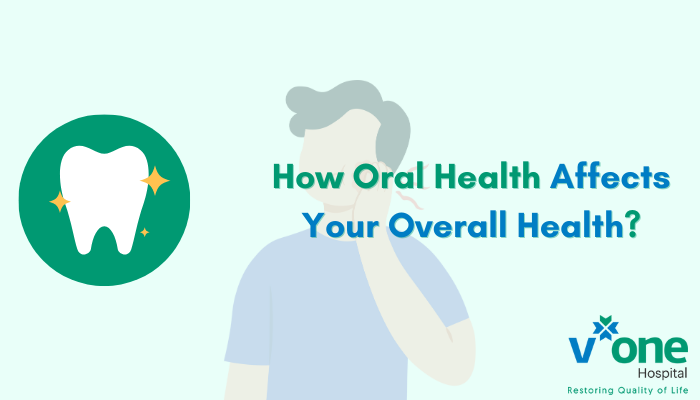Don’t Neglect Your Teeth: How Poor Oral Health Can Affect Your Overall Health?
How With our attention spread too thin between a hundred different responsibilities everyday, our mouths often go neglected. But did you know that your oral health can be a window into your overall health? And not just that, it can actually influence the state of your overall health.
By learning the relationship between your mouth and your body, you can become healthier overall. Let’s learn how to do that.
The Connection Between Your Oral Health and Your Overall Health
Your oral health is indeed a window to your overall health. All parts of your body have some bacteria, and your mouth is no exception to that. But while most of these bacteria are normal, some bacteria can travel from your mouth to your digestive or respiratory tracts, and then cause diseases. Failing to maintain proper oral hygiene can also increase the levels of bacteria in your mouth and lead to oral infections like gum disease and tooth decay.
Declining oral health can also be an indicator of a bigger problem underneath. For example, if you have multiple tooth fractures and gum disease that is advancing rapidly, it could be a sign that something else is going on, like high blood pressure or anemia.
So what’s the connection between your oral health and your overall health? Well, the two have a bit of a synergic relationship. Your oral health is both- a window to your overall health and a driver to it at the same time.
Conditions Related to Oral Health
While poor oral hygiene can lead to a multitude of diseases and infections, certain conditions are found to be linked to poor oral health through repeated studies over the years.
Let’s take gum disease as an example. Through years of research, it has been linked to problems like heart diseases, diabetes, respiratory diseases, osteoporosis, and rheumatoid arthritis. In fact, researchers at the University of North Carolina School of Dentistry combed through over 1000 medical histories to conclude that people with gum disease were twice as likely to die from a heart attack and thrice as likely to have a stroke.
It also has a reciprocal relationship with diabetes. Treating diabetes improves your oral health and treating periodontal disease reduces your need for insulin.
How to Protect Your Oral Health?
Time and again, we are told by our elders and our dentists to practice good oral hygiene. From things like brushing twice a day to staying careful of how sweets affect your teeth, we’ve heard it all. As it turns out, there is some truth to the advice.
So here’s what to do (or not):
- Brush twice daily and floss to remove the plaque from between your teeth. It’s important to maintain proper oral hygiene.
- Quit smoking and any other tobacco products. Smoking has the capacity to cause severe gum disease, and can ultimately affect your gums and the bone structure that supports your teeth.
- Limit your alcohol intake as it can wreck your teeth. Alcohol dehydrates your body and decreases your saliva, causing the harmful bacteria from food and drinks to cling to your teeth instead of being washed away. Ultimately, this can cause anything from gum disease to tooth decay.
- Schedule regular visits to your dentist – make it at least twice a year. He will take a good look at your teeth, gums, and everything in and around your mouth not just to make sure that everything is working fine, but also to look for any abnormalities or the start of something worse.
- Drink fluoridated water and brush with fluoride toothpaste. The fluoride stops the acids in food and drinks from damaging the enamel of developing teeth, in turn preventing tooth decay.
- If you have diabetes, try to get it in control. A high blood sugar level can lead to problems like cavities, tooth decay, and gum disease. It can reduce saliva and cause your mouth to dry up, and cause inflamed and bleeding gums. It can also make infections take longer to heal.
- See your doctor if you notice any sudden changes in taste or smell, or any abnormality in your mouth. Bigger problems like oral cancer can be dealt with better if caught early.
From habits to what you eat and drink, a lot can wreak havoc on your teeth. So even if it’s one of the last ones on your list, taking care of your mouth is something you can’t afford to leave out of your self-care routine. After all, a healthy, confident smile will accompany you throughout your life!

